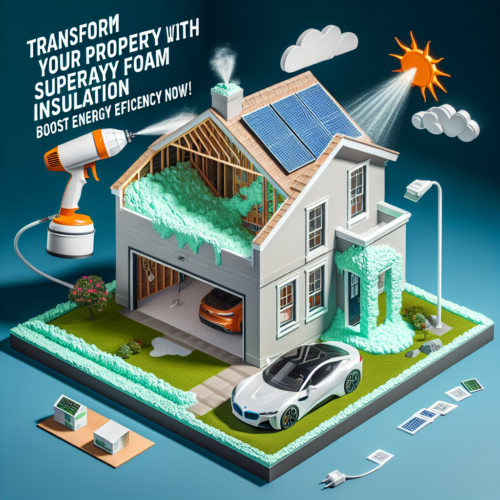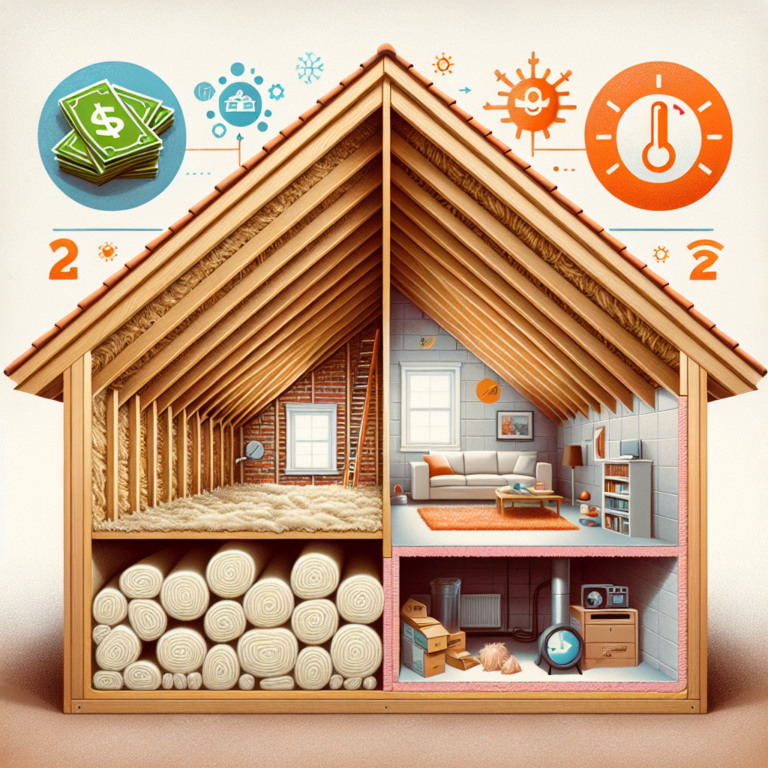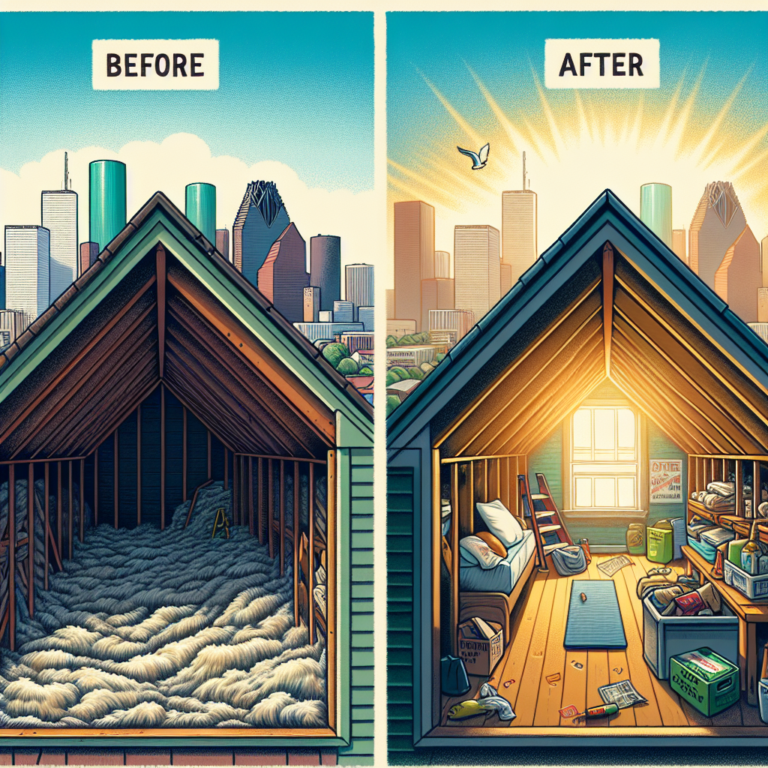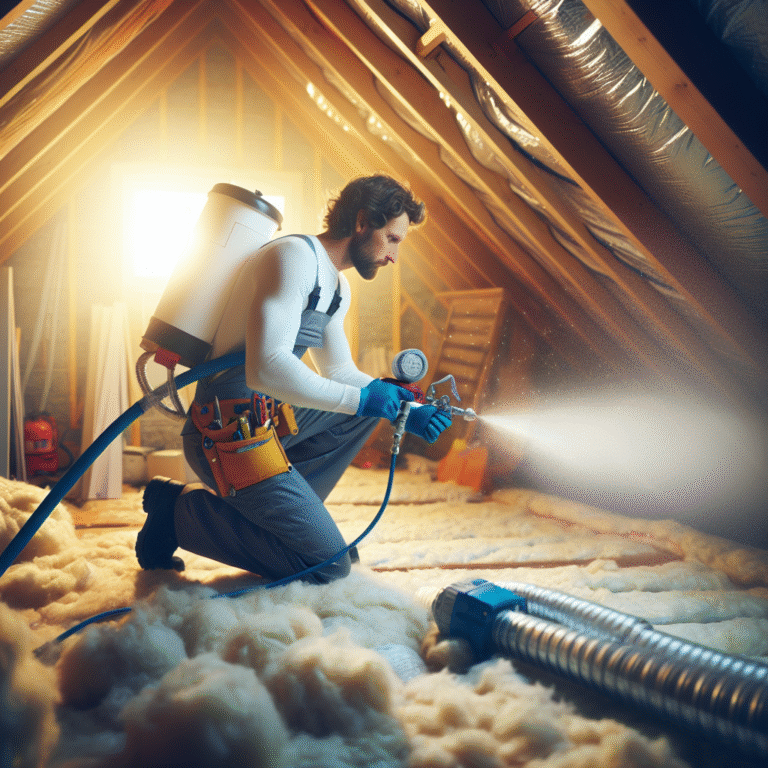Maximize HVAC Efficiency with Affordable Attic Insulation in Houston
Introduction
In the scorching Houston heat and humid winters, your HVAC system works overtime to keep indoor spaces comfortable. Yet one of the most effective ways to reduce that workload—and slash energy bills—is often overlooked: affordable attic insulation in Houston. By creating a robust thermal barrier in your attic, you’ll enhance HVAC efficiency, extend equipment lifespan, and enjoy a more consistent indoor climate year-round.
H2: The Role of Attic Insulation in Boosting HVAC Efficiency
Attic insulation serves as a critical line of defense against unwanted heat transfer. In summer, attic temperatures can soar above 140°F, forcing your air conditioner to combat a constant influx of hot air. In winter, heat generated indoors easily escapes through an uninsulated attic, compelling the furnace to run longer. Proper insulation:
• Minimizes heat gain and heat loss
• Reduces HVAC runtimes and cycling
• Lowers energy consumption and utility costs
• Prevents moisture buildup and potential mold growth
When your attic is insulated to recommended R-values, your HVAC system doesn’t have to work as hard to maintain set temperatures. This not only delivers significant energy savings—often up to 20% according to the U.S. Department of Energy—but also prolongs the life of costly equipment.
H2: Affordable Attic Insulation in Houston: Options and Benefits
Houston homeowners have access to several cost-effective insulation materials. Understanding each type helps you choose the best fit for your budget and performance goals:
Fiberglass Batts
• Precut panels that fit between joists
• R-values up to R-38 per layer
• Relatively low cost and DIY-friendly
Loose-Fill Cellulose
• Made from recycled paper treated with fire retardants
• Blown into cavities to seal gaps and voids
• Higher R-value per inch than fiberglass, eco-friendly
Open-Cell Spray Foam
• Expands to fill cracks, offering superior air sealing
• R-value around R-3.5 per inch
• Moisture barrier properties
Closed-Cell Spray Foam
• Highest R-value per inch (around R-6 to R-7)
• Exceptional air and moisture barrier
• Higher upfront cost but unmatched long-term savings
Each option provides improved comfort and energy efficiency. Fiberglass batts and cellulose are budget-friendly, while spray foam delivers premium performance, especially in hard-to-reach areas where air leaks are common.
H2: Installation Tips for Optimal Performance
To maximize HVAC efficiency with attic insulation, consider these best practices:
1. Assess Existing Insulation
• Measure current R-value and depth
• Identify compressed or damaged sections
2. Seal Air Leaks Before Insulating
• Caulk gaps around plumbing vents, ducts, and wiring
• Install foam gaskets behind electrical outlets on the attic floor
3. Choose the Right R-Value
• Houston’s climate calls for R-38 to R-60 in attics
• Factor in climate zone, budget, and HVAC capacity
4. Ensure Proper Ventilation
• Install soffit vents, ridge vents or attic fans
• Prevent moisture buildup and heat pockets
5. Hire Qualified Professionals
• Guarantee correct installation and safety compliance
• Avoid common mistakes like over-compression or uneven coverage
By combining air sealing, the right insulation material, and proper ventilation, you create an efficient attic system that empowers your HVAC to run less while delivering more comfort.
H2: Maximizing Energy Savings with Adequate Attic Insulation
An upfront investment in attic insulation pays dividends through lower utility bills and reduced maintenance costs:
• Energy Savings: Homeowners often recoup insulation costs in 2–5 years.
• Extended HVAC Lifespan: Reduced runtimes cut down on mechanical wear.
• Consistent Comfort: Eliminate hot or cold spots for uniform temperatures.
• Environmental Impact: Lower energy consumption reduces greenhouse gas emissions.
• Home Value: Energy-efficient features boost resale appeal.
When you factor in federal or state incentives and rebates available for energy-efficient home upgrades, the financial case for attic insulation becomes even stronger.
H2: Q&A About Attic Insulation and HVAC Efficiency
Q: How much can I save by adding attic insulation?
A: Proper insulation can lower heating and cooling costs by 10–20%, depending on current insulation levels and HVAC efficiency.
Q: Can I install insulation myself?
A: Fiberglass batts are DIY-friendly, but air sealing and spray foam installations require professional expertise and specialized equipment.
Q: How often should I inspect my attic insulation?
A: Schedule an inspection every 3–5 years, or immediately after roof repairs, pest infestations, or evidence of moisture intrusion.
Conclusion
Affordable attic insulation in Houston is the key to maximizing HVAC efficiency and achieving lasting comfort. By selecting the right materials, sealing air leaks, and ensuring proper ventilation, you’ll reduce energy consumption, lower utility bills, and extend your HVAC system’s lifespan. Ready to transform your attic into a high-performance thermal barrier? Invest in quality attic insulation today and enjoy a cooler, more energy-efficient home tomorrow.












